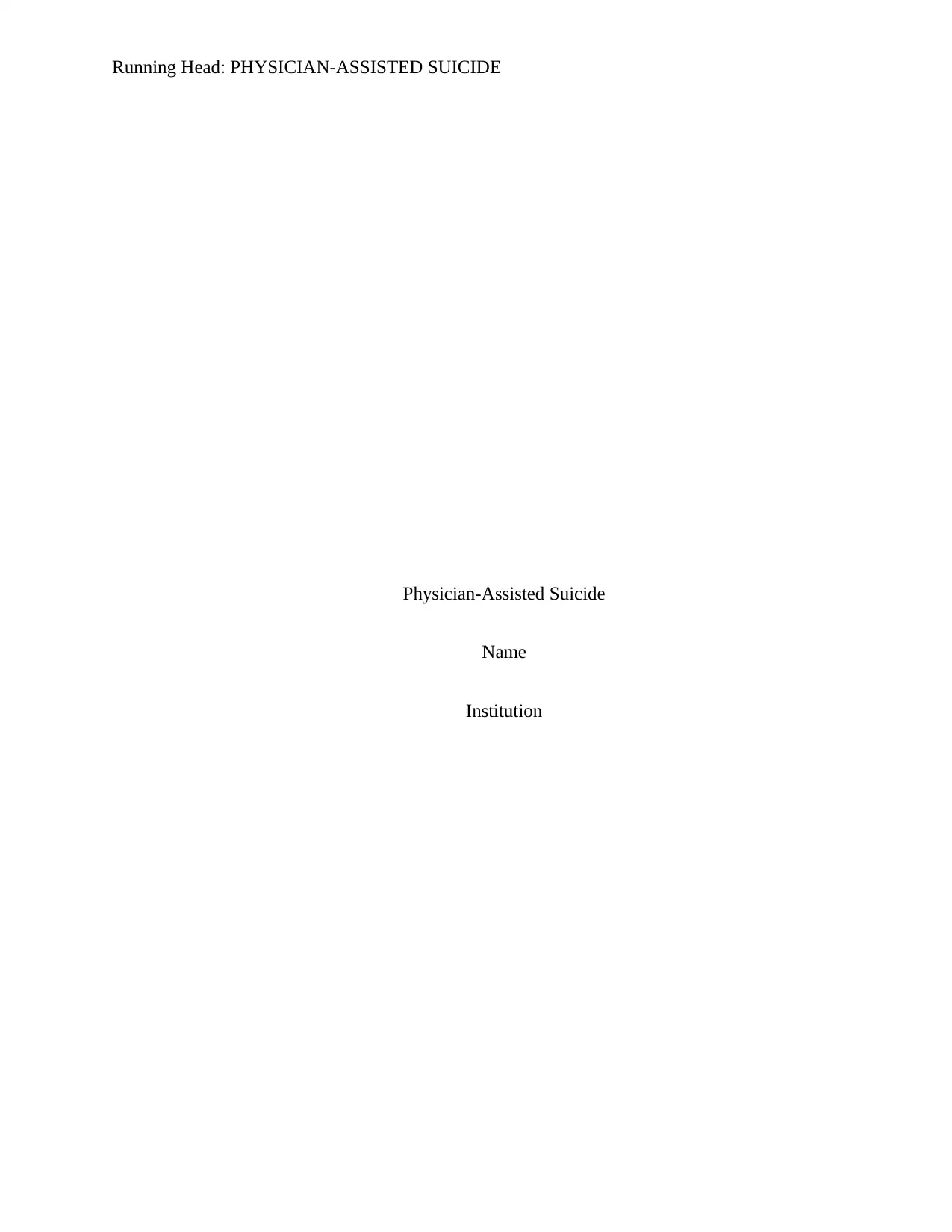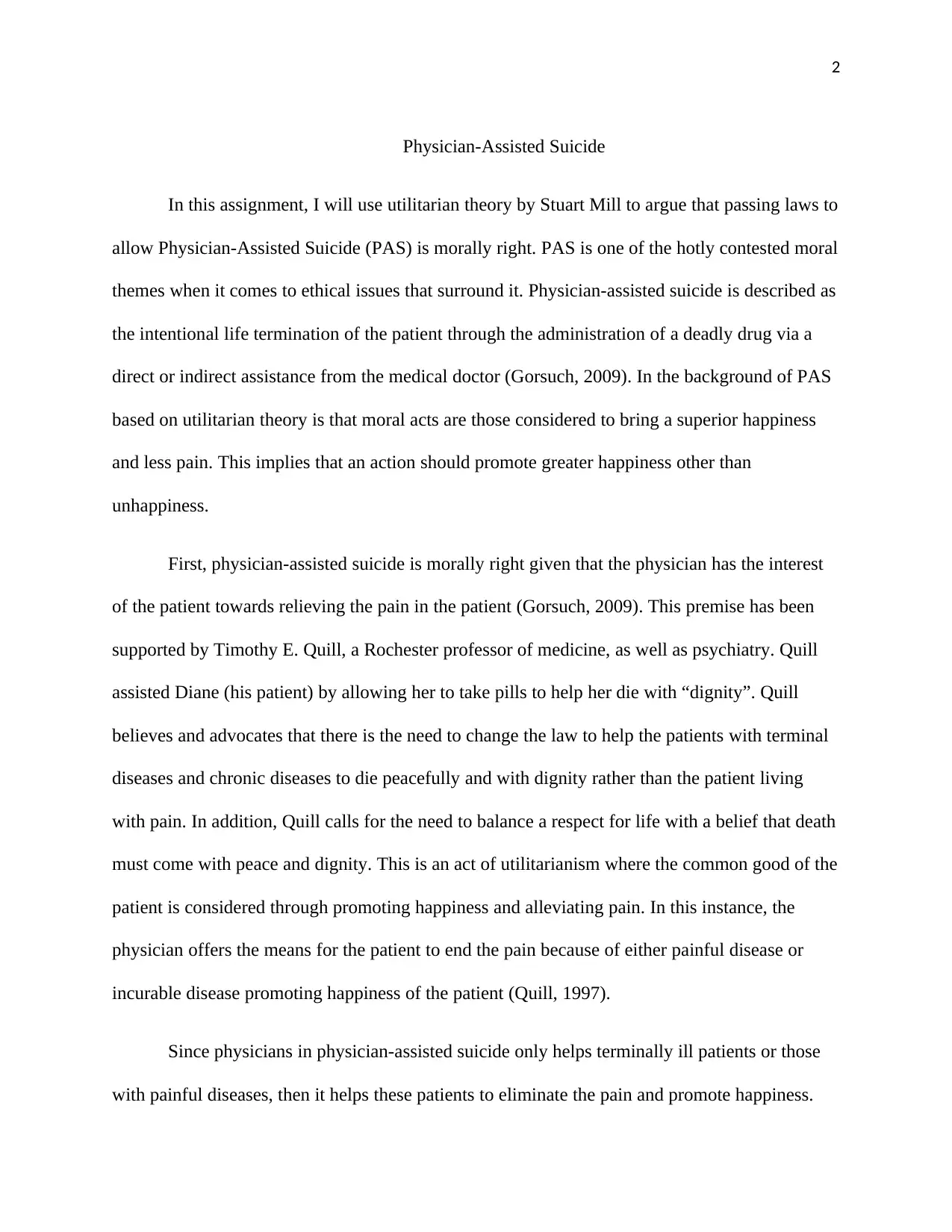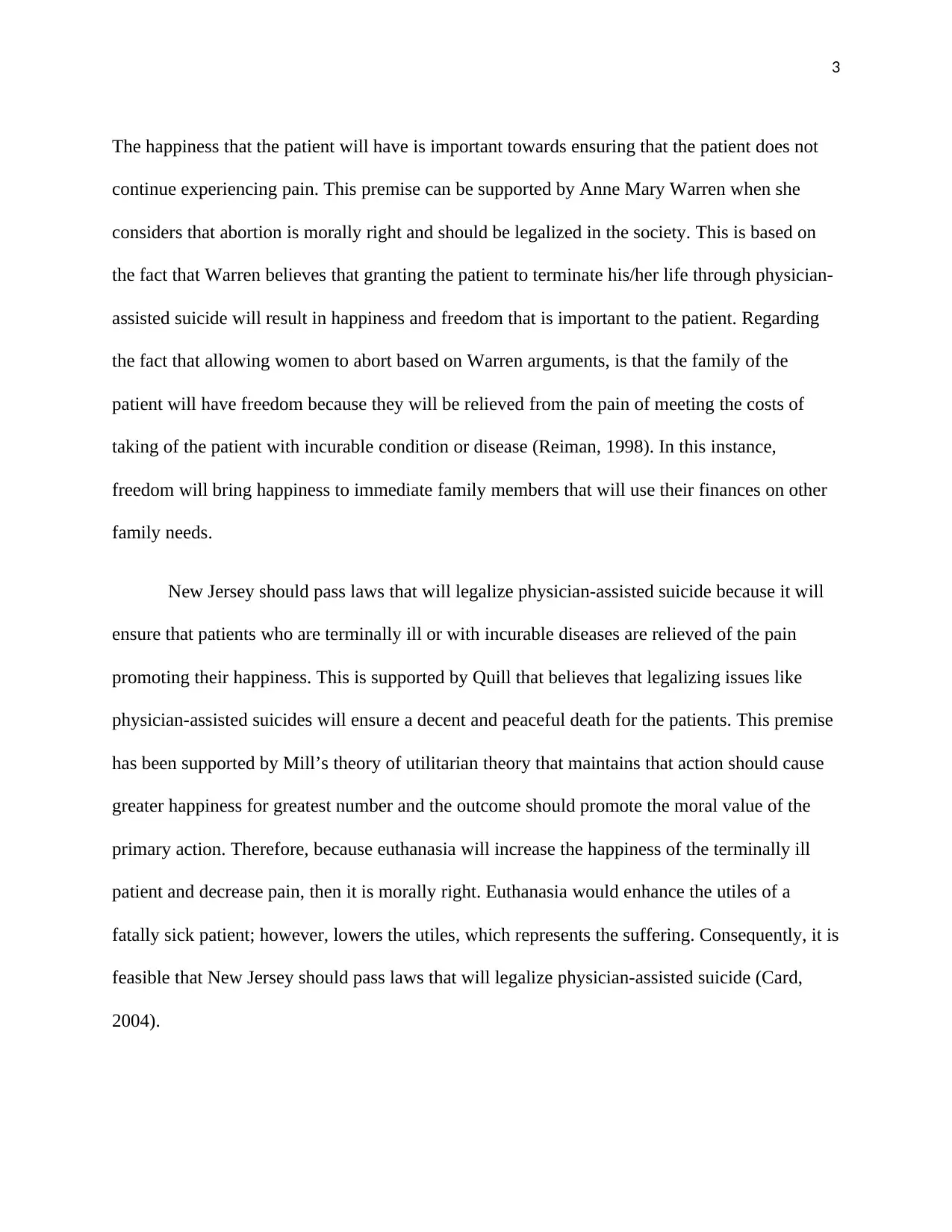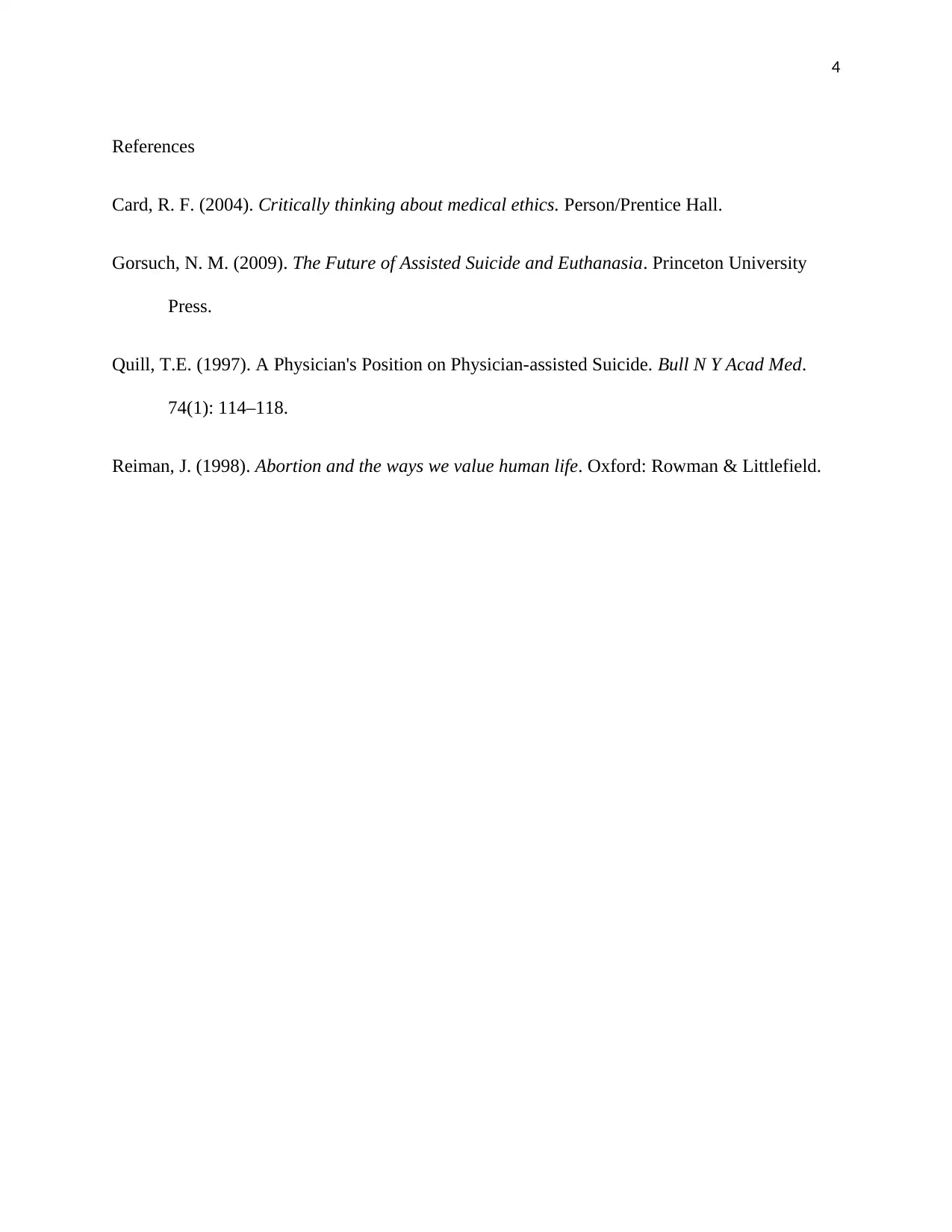Essay: Physician-Assisted Suicide, Utilitarianism, and Morality
VerifiedAdded on 2023/06/10
|4
|758
|488
Essay
AI Summary
This essay examines the ethical implications of physician-assisted suicide (PAS) through the lens of utilitarian theory, specifically referencing the work of Stuart Mill. The author argues that legalizing PAS is morally right, as it aligns with the utilitarian principle of maximizing happiness and minimizing pain. The essay highlights how PAS can alleviate suffering for terminally ill patients, promoting their well-being and dignity, as supported by the views of Timothy E. Quill and Anne Mary Warren. The author supports the argument by explaining how PAS enhances the patient's 'utiles' by reducing suffering. The essay concludes that allowing PAS will ultimately lead to greater happiness for patients and their families, advocating for the legal acceptance of PAS in New Jersey based on utilitarian reasoning.
1 out of 4










![[object Object]](/_next/static/media/star-bottom.7253800d.svg)